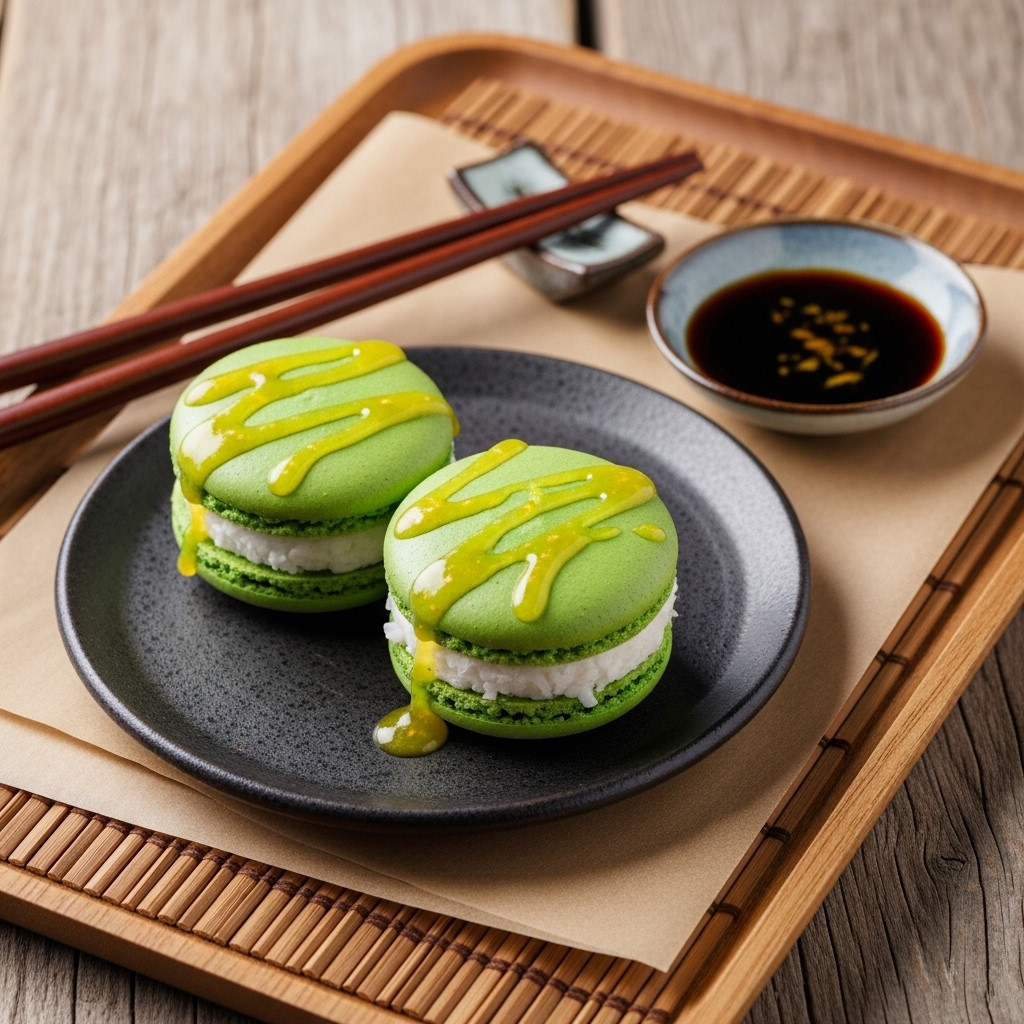
Japanese Matcha Macaron with Coconut Cream and Yuzu Glaze
Explore this exquisite Japanese Matcha Macaron with Coconut Cream and Yuzu Glaze, a Paleo-friendly dessert that brings the serene harmony of Japan to your plate.
Allergens
Tree nuts (almond flour)
Ingredients
- 100g almond flour
- 200g powdered sugar
- 60g egg whites
- 110g granulated sugar
- 1 tbsp matcha green tea powder
- 1/4 tsp cream of tartar
- 1/4 tsp salt
- 1 cup shredded coconut, unsweetened
- 3/4 cup heavy cream
- 2 tbsp yuzu juice
- 1/2 cup powdered sugar
Instructions
- a. In a food processor, blend almond flour and powdered sugar until combined. Set aside. b. In a mixing bowl, whisk egg whites with cream of tartar and salt until soft peaks form. Slowly add granulated sugar while continuously whipping until stiff peaks are achieved. c. Sift half of the dry ingredients into the egg whites and gently fold them together. Repeat with the remaining dry ingredients. d. In a separate bowl, mix matcha powder with 1 tablespoon of hot water to form a paste. Add this paste to the macaron batter, folding until fully incorporated. e. Transfer batter to a piping bag fitted with a round tip and pipe 1 inch rounds onto parchment paper. Tap the tray on the counter to release air bubbles and let rest for 20 minutes. f. Preheat oven to 300°F (150°C). Bake macarons for 14 16 minutes, or until they develop "feet" and do not wobble when touched. Cool completely on a wire rack. g. In a mixing bowl, whip heavy cream until soft peaks form. Fold in shredded coconut. h. In a separate bowl, whisk yuzu juice with powdered sugar to create the glaze.
Chef’s Insight
To achieve the perfect macaron texture, it is crucial to follow the exact instructions and techniques, from aging the egg whites to resting the piped macarons before baking.
Notes
For best results, use a kitchen scale to measure ingredients accurately.
